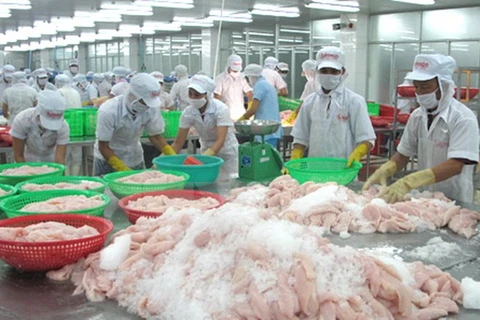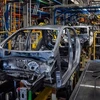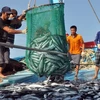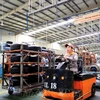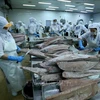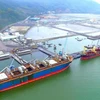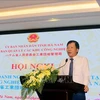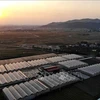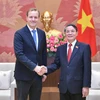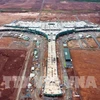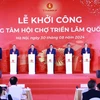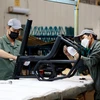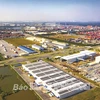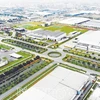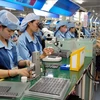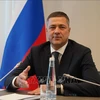Hanoi (VNA) – The Trans-Pacific Partnership (TPP) deal is set to facilitate trade and investment, bringing more benefits to production, business, workers and consumers, Prime Minister Nguyen Tan Dung said in a recent article.
In the article, titled “The TPP, opportunities and challenges – Our action”, Prime Minister Dung wrote that the TPP is a comprehensive market access deal that ensures more free movement of commodities, services, capital and technology through commitments to removing export-import tariffs and non-tariff barriers and creating a fair and indiscriminatory business environment.
Recently signed by 12 member states, including Vietnam, the agreement will promote the formation of a new manufacturing and supply chain, facilitate internal trade, improve economic efficiency, support job creation and increase incomes, thus dealing with the challenges of a contemporary economy.
The TPP respects the political regimes of each country, and includes a requirement to fully abide by countries’ laws in line with international commitments exclusive of defence and security terms, he wrote.
The Government leader added that the TPP, alongside a free trade agreement with the EU, will provide advantages and also create new challenges for Vietnam.
Such agreements will propel new momentum in socio-economic development, especially in attracting investment and promoting exports with the world’s largest economies – including the 28-member EU with a gross domestic product of over 18 trillion USD and the 12-member TPP with more than 20 trillion USD.
He underscored that joining the above agreements marks new progress in pursuing a foreign policy of independence, self-reliance, multilateralisation and diversification of ties, improving Vietnam’s stature in international scene, especially in an area facing more intense strategic competition.
The PM said fierce competition will pose challenges. Under the pressure of competition, enterprises with poor performances in transformation and restructuring may stand on the verge of dispersal or bankruptcy.
Also, a segment of labourers will face unemployment, he added, noting that agriculture and farmers will be the most vulnerable.
The income gap will be widened if the rapid, sustainable development strategy produces no effective results and people do not benefit from growth outcomes, the leader warned.
Another obstacle lies with the process of effectuation, from completing the legal system to personnel training and improving the capacity of officials, as well as technical and legal experts.
The PM underscored the need for the Vietnam General Confederation of Labour and the entire political system to gear up for new requirements on employment and trade union affairs.
Such opportunities cannot turn into economic strength, interests and competitive edge in the market themselves. But through endeavours and the effectiveness of the targeted operation of the State, population and enterprises they can, he wrote.
Businesses determine the micro competitiveness and reflect the strength, as well as the competitiveness of the economy, the leader said.
He suggested the business sector be courageous and partake in the competition while taking the initiative in employing synchronous and drastic measures to raise the competitiveness of its goods and services.
However, businesses must operate within the institutional framework and business climate that have been set by the State, he noted.
According to PM Nguyen Tan Dung, a national administration institution is decisive to the macro competitiveness and the development of an economy. This has been proven through research and in reality.
The institutional quality determines the growth and sustainability of the economy, he said, adding that institution plays a decisive role to the effectiveness and competitiveness of businesses.
To have a high-quality institution, the Government leader stressed the need to soundly define the relationship between the State, the market, society and enterprises.
The State has to stabilise the macro-economy, build the legal system and organise the management apparatus in order to create an open, transparent business environment and ensure business freedom and fair competition.
The market makes decisions on the mobilisation, allocation and effective use of resources. Enterprises can do business in the fields that are allowed by law. They must improve their social responsibility and business culture.
Meanwhile, through people and their representative occupational organisations and associations and independent researchers, the society can help make and supervise the enforcement of policies, thus helping reduce weaknesses of the State and the market, he said.
To ensure success in international integration and the efficient implementation of FTAs – especially the TPP and Vietnam-EU FTA – it is essential to have resolutions from the Party and National Assembly, and specific action plans from the Government, ministries and business community.
The PM also emphasised the importance of doing communication work effectively in order to create a consensus in consciousness and unity in action as well as making efforts to increase national competitiveness so as to develop the economy quickly and sustainably.-VNA



